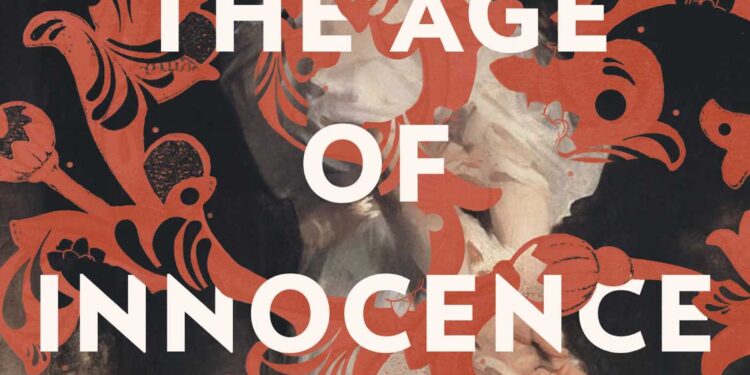Edith Wharton’s novel “The Age of Innocence” is a compelling study of the societal pressure that exists in the rigid structure of the upper-class society in New York City in the late 19th century. Through the experiences of its protagonist, Newland Archer, the novel portrays the rigid expectations and codes of behavior that govern the actions of people in this society, and the consequences that arise when these expectations are challenged.
Theme of societal pressure in The Age of Innocence:-At the heart of the novel is the theme of societal pressure, which is exemplified in the restrictive social norms and values that are upheld by the upper-class society. These norms govern every aspect of life, from the clothes that people wear to the way that they interact with each other.
For example, there is a strict code of conduct for women, which demands that they be modest, obedient, and conformist. This is exemplified in the character of May Welland, who is the epitome of the ideal upper-class woman. She is well-behaved, polite, and dutiful, and she is determined to maintain the status quo of her social position.
Also Read:-
- William Shakespeare use concept of power in Macbeth
- Theme of redemption in John Milton’s Paradise Lost
- Analyze use of metaphor in Langston Hughes Harlem
- The use of symbolism in Charlotte Bronte’s Jane Eyre
Theme of societal pressure in The Age of Innocence:-The pressure to conform to these norms is particularly strong for Newland, who is expected to follow in the footsteps of his elders and adhere to the strict codes of conduct that have been established by the upper-class society. Newland is initially content with this way of life, but he gradually begins to question the values and ideals that he has been raised with. This is largely due to his association with the unconventional and free-spirited Ellen Olenska, who challenges his beliefs and forces him to question his assumptions about life and love.
Theme of societal pressure in The Age of Innocence:-Ellen Olenska is a character who embodies the antithesis of the societal expectations that are placed upon her. She is an unconventional woman who has lived in Europe for many years and has adopted a lifestyle that is considered scandalous by the conservative upper-class society.
She is outspoken, independent, and unconventional, and her behavior is seen as a threat to the social order. Newland is initially drawn to her because of her unconventional nature, but he soon realizes that their relationship is doomed because of the societal pressure that they face.
The novel also highlights the tension between the desire for individual freedom and the pressure to conform to societal expectations. Newland’s conflict between his desire to be with Ellen and his duty to conform to the expectations of his social class is a prime example of this tension.
He is torn between his desire for individual freedom and his responsibility to uphold the values and norms of the society he belongs to. Ultimately, he chooses to conform to the expectations of his society, giving up his love for Ellen and settling for a conventional marriage with May.
Theme of societal pressure in The Age of Innocence:-The novel also explores the theme of the illusion of freedom in the upper-class society. While the society appears to be open and free, with its wealth and social standing, the reality is that the people who belong to it are trapped by their own rigid norms and values.
The social pressure to conform to these norms is so great that even those who rebel against them end up being caught in their grip. This is exemplified in the character of Ellen, who is seen as a rebel and a free spirit, but who is ultimately unable to escape the constraints of the society she belongs to.
The Age of Innocence “Summary”
The Age of Innocence is a novel by Edith Wharton that was published in 1920. It is set in New York City during the 1870s and explores the social norms and expectations of the upper class. The novel is narrated by Newland Archer, a wealthy young man who is engaged to the beautiful and innocent May Welland.
Theme of societal pressure in The Age of Innocence:-At the beginning of the novel, Newland is a part of the upper echelon of New York society. He is engaged to May, who is considered the ideal wife for him. However, Newland’s life changes when May’s cousin, the Countess Ellen Olenska, returns to New York after separating from her abusive husband in Europe.
Ellen is considered scandalous by the New York society because of her failed marriage and her unconventional behavior. Newland is initially intrigued by her and sympathizes with her situation. He also realizes that he is attracted to her, which begins to complicate his engagement to May.
Theme of societal pressure in The Age of Innocence:-As Newland and Ellen spend more time together, their attraction to each other becomes stronger. However, Newland is torn between his love for Ellen and his sense of duty to May and their families. He ultimately decides to stay with May and marry her, despite his feelings for Ellen.
The novel also explores the strict social codes of the time, particularly the expectations placed on women. May, who is considered the ideal wife, is portrayed as a product of her upbringing and societal expectations. She is obedient and innocent, and she embodies the ideal of womanhood that was expected of her. In contrast, Ellen is portrayed as a rebel who defies these expectations and lives her life on her own terms.
Theme of societal pressure in The Age of Innocence:-Throughout the novel, Newland struggles with the conflicting expectations and desires of the society he belongs to and his own individual desires. He is torn between the world he knows and the possibility of a life with Ellen. Ultimately, he chooses the former, but the novel ends with a sense of regret and loss.
The Age of Innocence is a critique of the restrictive and oppressive social norms of the time. Wharton exposes the hypocrisy of the upper class and highlights the limitations placed on women. The novel is also a reflection on the nature of desire and the conflict between individual desires and societal expectations.
Theme of societal pressure in The Age of Innocence:-Wharton’s prose is elegant and restrained, reflecting the society she is portraying. She uses irony and understatement to expose the contradictions and limitations of the society she is depicting. The novel is also notable for its vivid descriptions of New York City during the Gilded Age.
Conclusion
To conclude, Edith Wharton’s “The Age of Innocence” presents a powerful exploration of societal pressure in the upper-class society of late 19th century New York City. The novel vividly depicts the rigid expectations and codes of behavior that govern the actions of people in this society, and the consequences that arise when these expectations are challenged.
Through the experiences of its protagonist, Newland Archer, and his association with the unconventional Ellen Olenska, the novel highlights the tension between the desire for individual freedom and the pressure to conform to societal expectations. Ultimately, the novel exposes the illusion of freedom in the upper-class society and highlights the ways in which individuals are trapped by their own rigid norms and values. Overall, “The Age of Innocence” remains a powerful and thought-provoking work that continues to resonate with readers today.
FAQ.
Q. What is “The Age of Innocence” about?
“The Age of Innocence” is a novel set in the upper-class society of New York City in the late 19th century. It follows the experiences of Newland Archer, a young lawyer who is torn between his duty to conform to the expectations of his social class and his desire for individual freedom. When he falls in love with the unconventional Ellen Olenska, he is faced with a difficult choice between his duty to his society and his desire for love and passion.
Q. What are the major themes of “The Age of Innocence”?
The major themes of “The Age of Innocence” include societal pressure, the tension between individual freedom and societal expectations, the illusion of freedom in the upper-class society, and the consequences of challenging the norms and values of one’s society.
Q. Who are the main characters in “The Age of Innocence”?
The main characters in “The Age of Innocence” include Newland Archer, a young lawyer; May Welland, his fiancée and later wife; Ellen Olenska, May’s cousin and an unconventional woman; and Julius Beaufort, a wealthy businessman who is rumored to have a scandalous past.
Q. What is the significance of the ending of “The Age of Innocence”?
The ending of “The Age of Innocence” is significant because it highlights the tragic consequences of the societal pressure and expectations that govern the actions of the novel’s characters. Newland ultimately chooses to conform to the expectations of his society, giving up his love for Ellen and settling for a conventional marriage with May. This decision represents a loss of individual freedom and passion, and it emphasizes the power of societal pressure to shape and constrain individual choices.
















